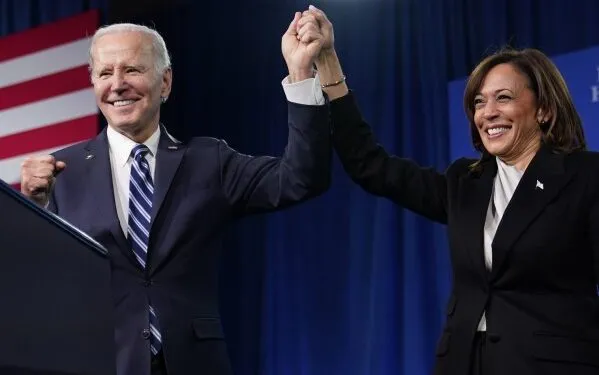US President Joe Biden has announced his withdrawal from the 2024 presidential race, dramatically altering the landscape of American politics just four months before the November election. The 81-year-old president’s recent decision follows increasing pressure from members of his own party, prompted by a lacklustre and occasionally incoherent debate performance against former President Donald Trump in late June.
Mounting pressure and growing concerns
With Biden’s withdrawal, we are witnessing a rare occurrence in American politics. The last time an incumbent president chose not to seek re-election was back in 1968 with Lyndon Baines Johnson. In contrast to Johnson, whose lack of popularity was largely due to the Vietnam War, Biden has faced more personal challenges. Questions about his age and mental sharpness, which were brought up during the debate with Trump, have remained a topic of discussion throughout his presidency. Despite his initial reluctance to heed the calls for stepping aside, mounting concerns about his ability to effectively challenge Trump ultimately influenced his decision.
The Path Forward for Democrats
Following Biden’s departure, the Democratic Party faces the urgent task of regrouping and swiftly choosing a new candidate. Vice-President Kamala Harris is emerging as the most likely successor, particularly due to Biden’s public endorsement. In a recent post on X (formerly Twitter), Biden voiced his complete endorsement of Harris, urging Democrats to come together and concentrate on defeating Trump.
“Today, I am wholeheartedly expressing my support and endorsement for Kamala to become the nominee of our party this year. It is crucial for Democrats to unite and defeat Trump. “Let’s do this,” Biden wrote.
The Convention and Nomination Process
The Democratic National Convention, slated for August 19-22 in Chicago, was originally intended to officially nominate Biden. Now, the delegates, who had previously committed to supporting Biden, will now have the freedom to vote for a different candidate. The process for selecting the new nominee is not entirely clear, but with Biden’s endorsement, Harris has emerged as the frontrunner.
Reactions and Implications
Senate Majority Leader Chuck Schumer praised Biden’s decision, describing him as a devoted patriot and exemplary American. In his post on X, Schumer emphasised Biden’s accomplishments as a legislative leader and praised his selfless choice to prioritise the country and party above personal ambition.
Throughout Biden’s presidency, the nation’s divisions have only grown deeper, posing a significant challenge for the Democratic Party as his term nears its end. The upcoming months will be a critical period as Democrats focus on selecting a new candidate, unifying the party, and presenting a strong opposition to Trump.
Significant Historical Example
Biden’s decision to withdraw from the race mirrors the choice made by Lyndon Baines Johnson in 1968, which was also a significant moment when an incumbent president opted not to run for re-election. Johnson’s decision to leave office was influenced by the tumultuous events of the Vietnam War, whereas Biden’s departure is a result of his personal health concerns and mounting political pressure. Both decisions highlight the unpredictable nature of presidential politics and the significant responsibility of leadership.
As the nation heads into an unprecedented election season, the Democratic Party must navigate the complexities of selecting a new nominee while maintaining focus on the broader goal of winning the presidency. Biden’s endorsement of Harris sends a strong message about his vision for the party’s future, although there are still significant obstacles to overcome. In this critical moment, the Democratic Party’s response will have a profound impact on the trajectory of American politics.



